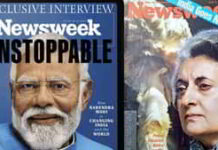TOPIC ‒ Politics and the challenges that arise in the process of making decisions and reaching agreements between opposing forces.
It is often said that politics is a dichotomy, a constant battle between opposing forces. The intransigent attitudes of politicians and government officials can make it difficult to find common ground and reach agreements. Their speeches and actions can be enigmatic, leaving the public unsure of their intentions. However, in order to appeal to a wider audience, politicians often resort to euphemisms, using vague and indirect language to avoid controversy. Unfortunately, this can lead to a prosaic and uninformative discourse that fails to address important issues. To truly understand politics, one needs to have an esoteric knowledge of the inner workings of government and policy-making. It is therefore important to disseminate information widely and make it accessible to everyone. A cogent and well-argued case can change minds and sway public opinion, even in the face of entrenched opposition. In today’s world, social media is ubiquitous, providing a platform for disseminating information, sharing opinions, and engaging in political discourse.
The Hindu Editorial Words with meanings, synonyms, and antonyms
- Intransigent – unwilling to change one’s views or to agree about something (adjective) Example: The intransigent attitude of the government officials led to a prolonged strike.
- Enigmatic – mysterious, difficult to understand (adjective) Example: The enigmatic smile of Mona Lisa has puzzled art enthusiasts for centuries.
- Prosaic – dull, lacking in imagination (adjective) Example: The novel was criticized for its prosaic writing style.
- Euphemism – a mild or indirect word or expression used in place of one considered to be too harsh or blunt (noun) Example: “Letting go” is a euphemism for firing an employee.
- Dichotomy – a division or contrast between two things that are or are represented as being opposed or entirely different (noun) Example: The dichotomy between science and religion has been a topic of debate for centuries.
- Esoteric – intended for or likely to be understood by only a small number of people with a specialized knowledge or interest (adjective) Example: The professor’s lectures were often esoteric, and only a few students could follow his complex arguments.
- Disseminate – to spread or disperse widely (verb) Example: The government launched a campaign to disseminate information about the new vaccination program.
- Antithesis – a person or thing that is the direct opposite of someone or something else (noun) Example: The concept of good and evil is often portrayed as an antithesis in literature.
- Cogent – clear, logical, and convincing (adjective) Example: The lawyer presented a cogent argument that convinced the jury to acquit his client.
- Ubiquitous – present, appearing, or found everywhere (adjective) Example: Social media has become ubiquitous in our daily lives.
















